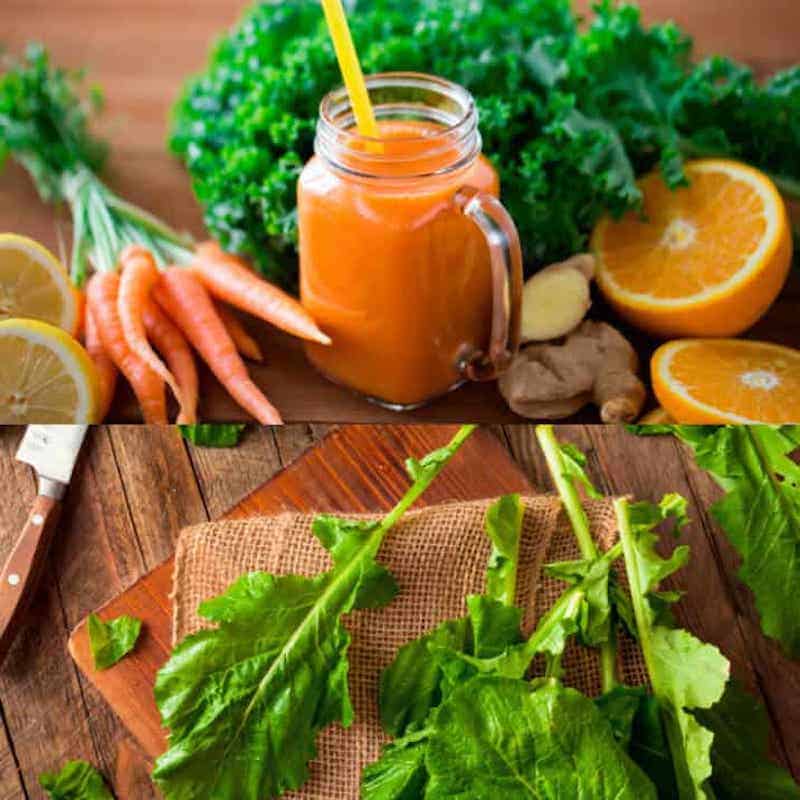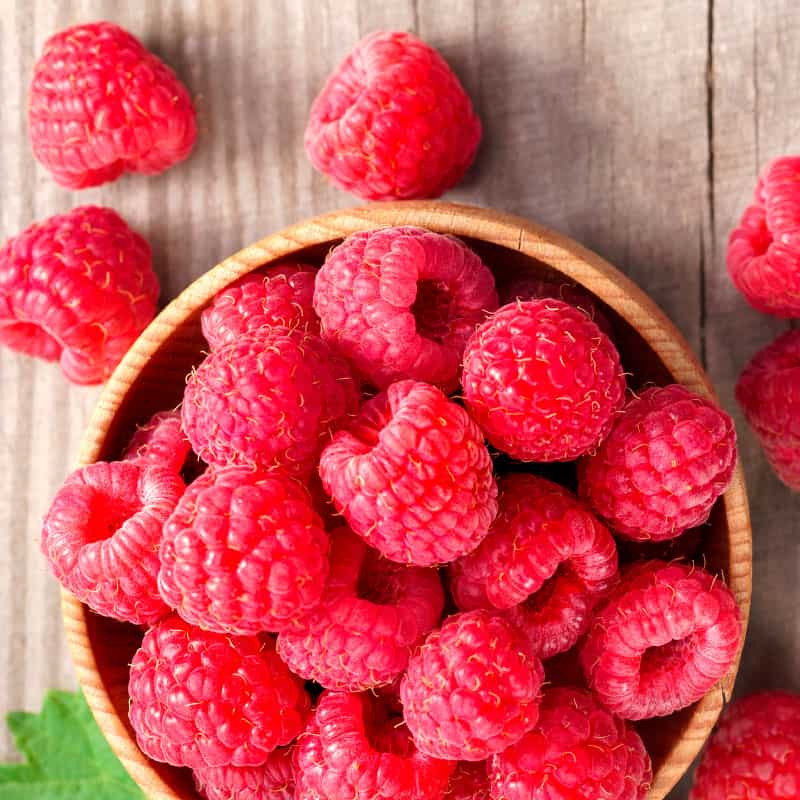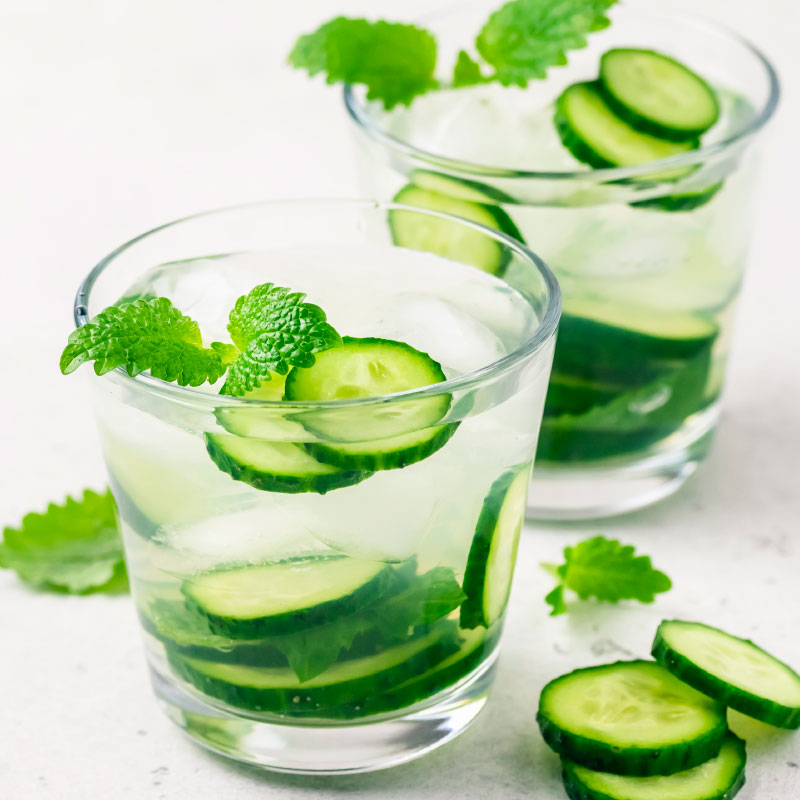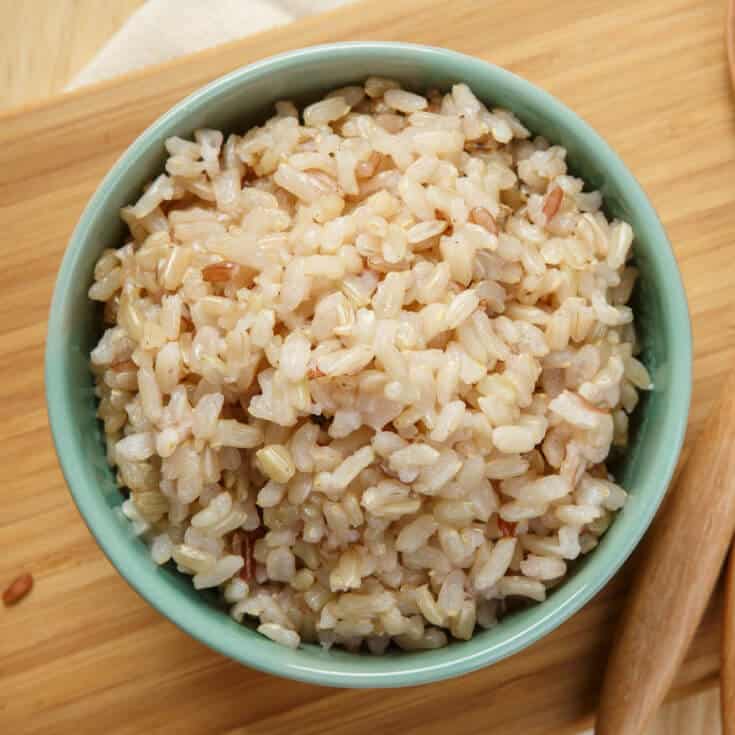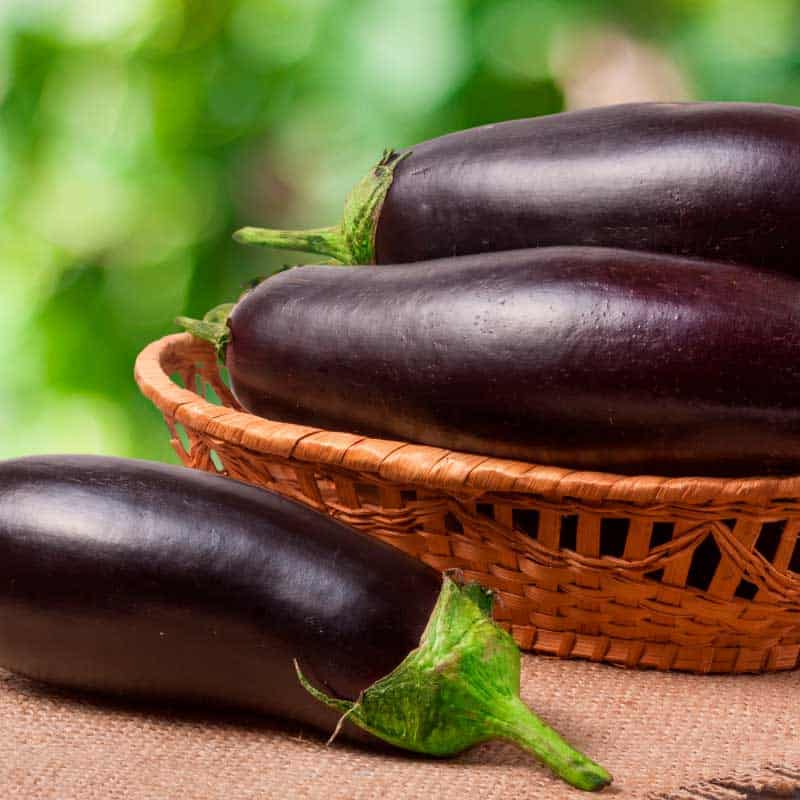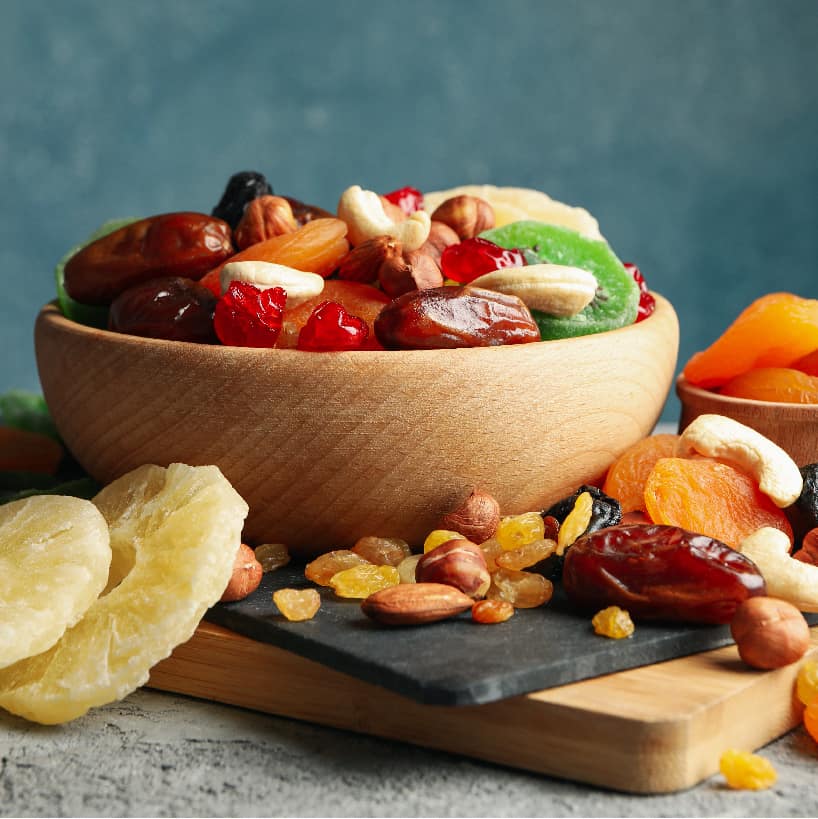This Dr. Axe content is medically reviewed or fact checked to ensure factually accurate information.
With strict editorial sourcing guidelines, we only link to academic research institutions, reputable media sites and, when research is available, medically peer-reviewed studies. Note that the numbers in parentheses (1, 2, etc.) are clickable links to these studies.
The information in our articles is NOT intended to replace a one-on-one relationship with a qualified health care professional and is not intended as medical advice.
This article is based on scientific evidence, written by experts and fact checked by our trained editorial staff. Note that the numbers in parentheses (1, 2, etc.) are clickable links to medically peer-reviewed studies.
Our team includes licensed nutritionists and dietitians, certified health education specialists, as well as certified strength and conditioning specialists, personal trainers and corrective exercise specialists. Our team aims to be not only thorough with its research, but also objective and unbiased.
The information in our articles is NOT intended to replace a one-on-one relationship with a qualified health care professional and is not intended as medical advice.
6+ Anti-Inflammatory Teas to Begin Drinking Today
April 3, 2024
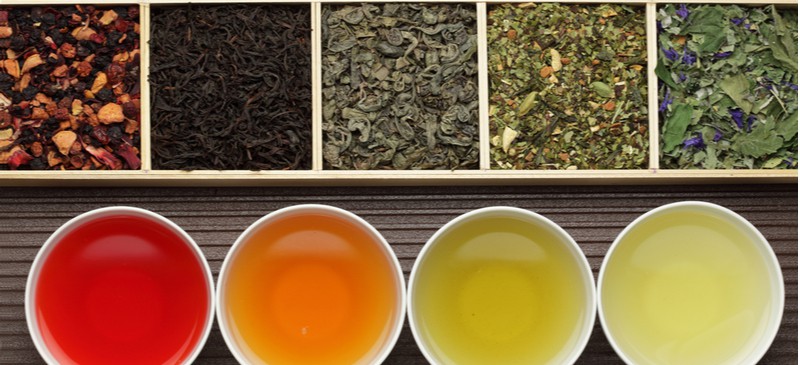
When it comes to immune-boosting, anti-inflammatory drinks, teas are at the top of the list. The antioxidant properties in most teas help reduce oxidative stress, and the antimicrobial, antiviral and anti-inflammatory properties work to boost immune function and overall health.
What better way to support your health than by sipping on a comforting, nourishing cup of tea throughout the day? Explore these top anti-inflammatory teas that can benefit your overall wellness in so many ways.
Top Anti-Inflammatory Teas
1. Green Tea
The benefits of green tea and well-known and plentiful. It’s known as the ultimate anti-aging beverage, and it’s one of the most consumed drinks in the world.
Many studies indicate that green tea has anti-inflammatory and antioxidant effects. It suppresses the gene and protein expression of inflammatory cytokines. Drinking green tea has been shown to improve the quality of life in patients with inflammatory diseases.
A study published in Food and Nutrition Research found that supplementation of green tea has beneficial effects on markers of inflammation and antioxidant status, as well as blood pressure.
How to prepare: There are many types of green tea, with sencha being the most popular and matcha green tea gaining popularity because of its high antioxidant content.
To prepare green tea, place your tea bag or high-quality tea leaves in a teapot, and heat the water to 160–180 degrees Fahrenheit. This is under boiling temperatures so you don’t reduce the delicate compounds found in green tea. Steep the leaves for 1–3 minutes or more if the leaves are larger.
You can add lemon juice or raw honey to green tea right before drinking.
Preparing matcha tea is a different process. For matcha, you’ll add 1 teaspoon of matcha powder to a bowl or cup and 2 ounces of almost boiled water.
Then you whisk the powder for one minute until it becomes thick and frothy. Lastly, add 4 more ounces of water before drinking.
2. Chamomile Tea
One of the most well-known anti-inflammatory teas is chamomile, which has been used for nearly 5,000 years for its ability to promote tranquility and longevity.
Chamomile tea has actually been called an “herbal aspirin” because of its pain-lowering properties. The anti-inflammatory effects of chamomile allow the herb to reduce pain, swelling, redness and underlying issues of inflammation.
Research evaluating the benefits of chamomile show that not only can the herb reduce inflammation when consumed in tea form, but it works to improve inflammatory issues when used topically too.
Chamomile is often used to treat inflammation of the skin and mucous membranes, along with various bacterial infections of the skin, mouth and respiratory tract. It may also help soothe gastrointestinal complaints and even inflammation of the eye.
Just note, people with ragweed allergies sometimes report aggravated symptoms when drinking chamomile tea, so it may not be a suitable choice for people allergic to ragweed.
How to prepare: Chamomile tea is the most popular way to consume the herb, and it’s widely available in ready-to-serve tea bags. You can also find chamomile powder and extracts, which are known to be the most potent forms of the herb’s antioxidants. If you are drinking chamomile tea to reduce inflammation, consume 1–4 cups per day.
This strong anti-inflammatory herb can be used to make homemade beauty and body care recipes, too, such as this Homemade Bubble Bath with lavender and chamomile.
3. Ginger Tea
Drinking ginger tea is a comforting, flavorful way to alleviate inflammation, ease an upset stomach, and even control cholesterol and blood sugar levels.
Gingerol, the most valuable compound in ginger, has been analyzed for its anti-inflammatory effects. Research published in the Journal of Medicinal Food suggests that this constituent in ginger modulates biochemical pathways that are activated in chronic inflammation.
A 2017 study published in PharmaNutrition indicates that ginger’s anti-inflammatory properties are not limited to its phenolics, but are also due to the combined effects of the root’s metabolites, pungent gingerols and aromatic essential oils.
How to prepare: Ginger tea is available in ready-to-serve tea bags that you can find in most grocery stores. You can also make your own ginger tea by following this easy anti-inflammatory herbal tea recipe:
- Peel and cut a 2-inch knob of ginger into thin slices.
- Add slices to a pot of water, and boil for 10–30 minutes (depending on your desired potency).
- Strain and discard ginger.
- When ready to drink, add fresh lemon or organic honey for sweetness.
4. Peppermint Tea
Peppermint has been proven to possess anti-inflammatory, antiviral and antimicrobial properties. It’s often used to alleviate symptoms of irritable bowel syndrome and support respiratory health by reducing congestion and opening the airways. It’s known as one of the best teas for inflammation of the stomach.
How to prepare: You can easily find peppermint tea in bag form at your local grocery store. There are also loose-leaf tea options on the market.
If you have peppermint oil at home, you can make an anti-inflammatory tea by adding two drops to green, white or black tea. This is an excellent remedy for upset stomach, respiratory issues and fatigue.
5. Turmeric Tea
Turmeric tea is made by steeping turmeric root or powder. This is an easy way to add anti-inflammatory turmeric to your diet. The most active ingredient in turmeric, curcumin, has powerful anti-inflammatory properties and has been found in vitro studies to reduce markers of inflammation.
Research suggests that turmeric tea also helps boost immune function by reducing inflammation and preventing oxidative stress. The antioxidants in turmeric help optimize your overall health.
How to prepare: Turmeric tea is available in ready-to-serve tea bags. It can also be made from turmeric that is dried, ground or in powdered forms. To make your own, add 1–2 tablespoons of turmeric to 4 cups of water, and let it simmer for 10 minutes.
You can also try this Turmeric Tea Recipe that’s made with coconut milk, ghee and honey.
6. Yerba Mate
Yerba mate is a plant that belongs to the holly family, and its leaves and young twigs are shredded and aged to make loose-leaf tea. Yerba mate contains polyphenols and saponins that help boost the immune system and support the body’s ability to protect itself from disease.
Yerba mate is also nutrient-dense, containing multiple vitamins, minerals, antioxidants, fatty aids, tannins, amino acids and chlorophyll. Research shows that yerba mate has a high antioxidant capacity and protects DNA from oxidation.
How to prepare: Yerba mate is available in loose-leaf, ready-to-brew tea bags. You can also find it as a bottled cold beverage.
When making a loose-leaf tea, bring water or milk to a simmer, not a boil, add about one teaspoon per cup, and let it steep for 3–5 minutes. For flavor, you can add lemon, mint or your favorite natural sweetener.
Other anti-inflammatory teas to drink include:
- Jasmine tea
- Butterfly pea flower tea
- Guayusa tea
- Gynostemma tea
- Linden tea
- Dark tea (also food for reducing diabetes risk)
Risks and Side Effects
It’s possible that you’re allergic to one of these anti-inflammatory herbs, so discontinue drinking the tea if you experience food allergy symptoms, like itching, swelling or hives.
Drinking too much of these top anti-inflammatory teas may, in some cases, cause heart burn, diarrhea or upset stomach. If this occurs, cut back on the amount of tea you are consuming.
When drinking anti-inflammatory teas for medicinal or therapeutic purposes, stick to 1–2 cups a day, unless advised differently by your health care professional. This will minimize the risk of adverse side effects.
Final Thoughts
- The top anti-inflammatory teas are made with herbs and roots that help reduce inflammatory markers and oxidative stress that lead to disease.
- The best natural anti-inflammatory teas are available in ready-to-serve tea bags that can be found in most grocery stores, and they can be prepared at home by steeping the herb or root for several minutes.
- Drinking about two cups (or more if well-tolerated) of anti-inflammatory tea will help promote immune function and overall health.




